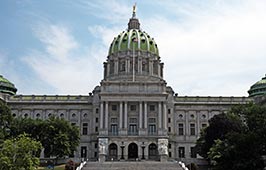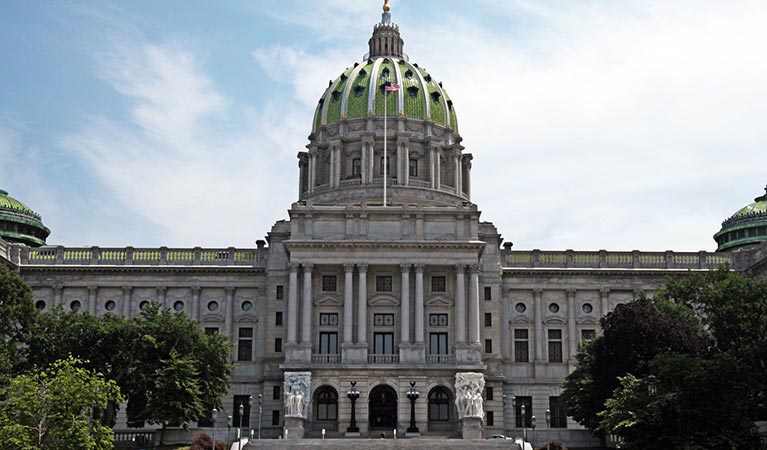Pennsylvania online gambling bill, formally known as House Bill 271, has been passed back and forth between the Senate and The House. Most recently on Wednesday 7th June, the legislation constructed to expand casino-style gaming to the internet, airports, and bars passed the state’s House by a slim 102-89 margin a few hours after it was released for public consumption. This result serves as the closest the state has ever come to realizing regulated online gambling.
The bill now heads back to the state’s Senate, along with a few major changes, of which the most controversial one is the allowance of as many as 40,000 video gaming terminals (VGTs) across the state, which has long been thought of as a non starter in the Senate, and will likely face opposition when it returns there. However, Rep. George Dunbar conveyed his confidence in that he believes that the Senate will come to a decision on the bill by June 19.
Dunbar, a strong proponent of online gambling, is not the original author of HB 271, but the language used in the legislation shares similarity with his own bill which he designed to authorise and regulate iGaming, daily fantasy sports and other activities.
“I think we did a heck of a job improving what the Senate sent over,” Dunbar said. “The product we put out yesterday at least is one that could function. It still needs some fine tuning and I’m not sure everything in there will remain in there, but at least it is a blueprint of something that would work.”
Huge Tax-rate Disparity
One of the most obviously difference of opinions between the House and Senate is the amount of tax to apply for online slots and table games. The State believes they should be subjected to the same 54{c118e36310c7bc75bef8f724f80ee0a52cfaf44be22f7e80906142f4c81518da} that is applied to casinos, but the House argues that in order to get iGaming up and running with casinos actually wanting to invest in online gaming, the more realistic amount should be 16{c118e36310c7bc75bef8f724f80ee0a52cfaf44be22f7e80906142f4c81518da}.
“People have to understand the cost drivers they have in iGaming, as well as the marketing dollars they have to put into iGaming,” Dunbar said. “The whole idea we’re telling everybody with iGaming is you’re reaching a new audience, and the only way to reach a new audience – whether they are Millennials or whatever – is marketing that costs money. You can’t tax at a 54-percent rate because casinos won’t be able to grab them and bring them into the brick and mortar.”
Though theres a 38{c118e36310c7bc75bef8f724f80ee0a52cfaf44be22f7e80906142f4c81518da} difference in the proposed tax rates by the Senate and the House, according to revenue estimates, it is actually the lower proposed tax of 16{c118e36310c7bc75bef8f724f80ee0a52cfaf44be22f7e80906142f4c81518da} by the House that will bring in between $250 million and $300 million in new revenue, compared to the $109 million to $147 million of the Senate’s version.
“There is a lot of good in this bill for everyone,” said Rep. Mike Sturla, D-Lancaster, who voted in favor of it.
Meanwhile, opponents warned that making gambling more accessible to the state’s citizens could result in waves of gambling addiction, that will negatively impact the community, and be a disaster for our children and families.
Under the bill, the Pennsylvania Lottery will be allowed to bring its games online, making Pennsylvania the first state to allow both casino and lottery games online.
What’s next?
The Senate will come together on the first three days of week commencing 12th June, and then again on the following Monday. According to Dunbar’s prediction, the Senate will come to a decision within these 4 sessions.
Despite new additions to the bill by the House, Dunbar said they were all taken from language used in other bills that have been in existence long enough that it should be very familiar to the Senate.
-
Tags:




